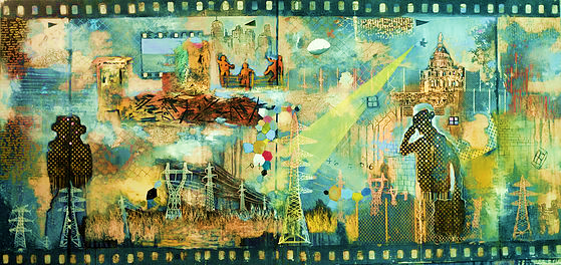Seminar Series to take place in Autumn 2018:

When: Thursday 15th November, 4-5pm
Location: Geography Library
Presenter: Denis Linehan, UCC
Title: ‘Knowing’ Nairobi: Infrastructure and Imagination
Abstract:
When Michel Serres asked: ‘What is closed? What is open? What is a connective path? What is a tear? What are the continuous and discontinuous? What is a threshold, a limit?’ (Serres, 1995: 44), he could have been referring to the connective and imaginative spatialities of infrastructure, which Bélanger (2009:190), amongst others, suggests needs to be radically rethought as ‘…open systems of live media operating across different geographical, political, and temporal scales’. In this paper, I draw upon new work on the social and cultural life of infrastructure in a reading of the urban condition in contemporary Nairobi. The focus will be on the political and cultural politics of roads, streets and contested dramas of everyday mobility. I will set the paper up against the backdrop of intensive urban development, which reflects boosterist narratives about Africa as an emergent site for global investment, but which has also has witnessed extensive dispossession of the poor. (Kimari, 2017) My paper is based upon found ethnography and the divergent realities of the post-colonial city as represented in political discourse and in contemporary visual art, literature and popular music. The artists, musicians and writers I speak to will include Dennis Muraguri, Paul Onditi, Kalamashaka, Yvonne Owuor, Makena Onjerika and Billy Kahora. Throughout the paper, I will theorize the entanglements of this work with the city, chasing their effervescence, disturbance, diversity, and unevenness. Drawing upon ideas from the geo-humanities and cultural anthropology, the paper will engage in loose domain switching, seeking what the geographer and artist Viya Diba has addressed as the ‘…proximity, affinity, and complicity between materials’. In joining a critique of conventional Urban Studies by underscoring alternative ways of ‘seeing’ the emergent urbanisms across Africa, I’ll argue that we can never fully know Nairobi, but that is possible to reach towards the experience of different ‘infrastructural publics’ which exist at the intersection of the body, place and technology, shaped in the orbit of ever evolving post-colonial settlements in which the question of rights to the city, citizenship and precarity loom large.
